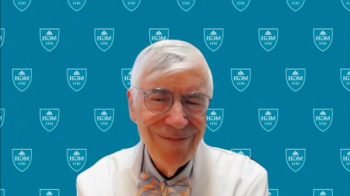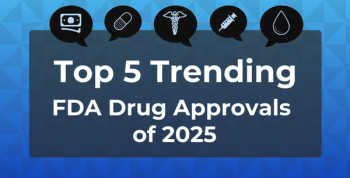
Sarilumab Indication Expanded to Include Polymyalgia Rheumatica
Sarilumab, a biologic, is sold as Kevzara.
The FDA recently approved sarilumab (Kevzara) for the treatment of adults with polymyalgia rheumatica (PMR) who had an inadequate response to corticosteroids (CS) or are unable to tolerate a CS taper.
Sarilumab, a biologic, is already approved for adults with moderate-to-severe active rheumatoid arthritis who had an inadequate response or intolerance to 1 or more disease-modifying antirheumatic drugs.
Sarilumab, which was previously granted priority review for the PMR indication, inhibits the interleukin-6 (IL-6) pathway by binding and blocking the IL-6 receptor, which inhibits IL-6-mediated signaling.
PMR is an inflammatory disorder that almost always occurs in people aged 50 and older, according to the
The approval of sarilumab for PMR was based on findings from the phase 3
The trial met its primary endpoint at 52 weeks, with 28% of patients administered sarilumab achieving sustained remission vs 10% for placebo (P =.0193). Sustained remission was defined as being in remission by week 12, absence of disease flare, C-reactive protein normalization from weeks 12 to 52, and adherence to the CS taper protocol from weeks 12 to 52.
The primary outcome was confirmed by a sensitivity analysis that removed measures of ongoing inflammation and maintained significance (proportion difference for sarilumab vs placebo: 18%; 95% CI, 3.1-32.6). The median cumulative CS dose was 777 mg for sarilumab vs 2044 mg for placebo, which was a secondary endpoint of the trial.
The most common adverse events (AEs) reported with sarilumab occurring in ≥5% of patients (n = 59) were neutropenia (15%), leukopenia (7%), constipation (7%), rash pruritic (5%), myalgia (7%), fatigue (5%), and injection site pruritus (5%).
Neutropenia occurred in 2 patients (3%) in the sarilumab cohort vs zero in the placebo group (n = 58). Both patients who developed neutropenia had a neutrophil count less than 500 per mm3 without any infections; neutropenia resolved following permanent discontinuation of sarilumab. The most common AEs resulting in permanent discontinuation of sarilumab other than neutropenia were infection in 3 separate patients (5%), including COVID-19 (n = 1), intervertebral discitis (n = 1), and pneumonia (n = 1).
The FDA evaluated sarilumab application for PMR under priority review. The biologic is being jointly developed by Regeneron and Sanofi under a global collaboration agreement.
"Corticosteroids have been the primary treatment to date, but many patients do not adequately respond to steroids or cannot be tapered off steroids, which puts such patients at risk of complications from long-term steroid therapy,” George D. Yancopoulos, MD, PhD, president and chief scientific officer at Regeneron,
Newsletter
Stay ahead of policy, cost, and value—subscribe to AJMC for expert insights at the intersection of clinical care and health economics.








